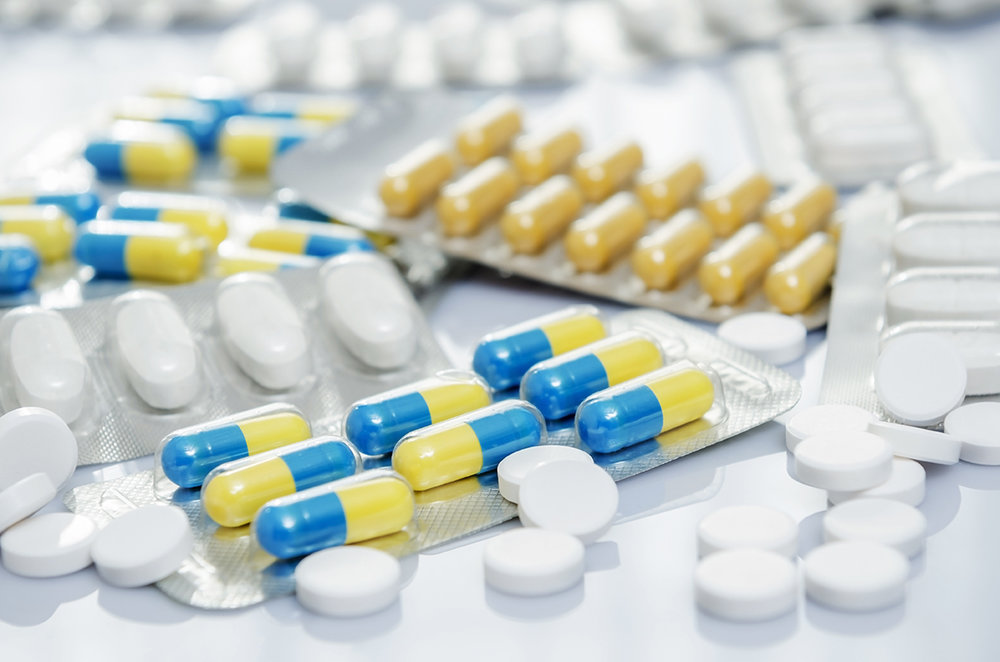How Medical Cannabis Interacts with Prescription Drugs
Peninsula Alternative Health has covered the benefits of medical cannabis. However, if this alternative treatment is co-administered with over-the-counter or prescription drugs, significant and troublesome drug interactions may occur. It is important to be aware of these interactions and discuss them with your physician as medication adjustments may be needed.
Amiodarone: This prescription medication is used to regulate heartbeat when other medications have proved ineffective. Amiodarone may inhibit the clearance of THC and CBD resulting in increased blood levels, this may have additional cardiac implications.
Amphetamines: These stimulants are used to treat narcolepsy and Attention Deficit Hyperactivity Disorder (ADHD). When used in combination with cannabis, the effects of the amphetamines may be pronounced resulting in an increased heartbeat, pulse rate, and respiratory rate.
Chlorpromazine: This synthetic drug is used as a tranquilizer, sedative, and antiemetic to treat mental and behavioral disorders, nausea and vomiting, and chronic hiccupping. Administering medical cannabis with chlorpromazine increases clearance of chlorpromazine resulting in a decreased effect.
Clobazam: This benzodiazepine is used to treat seizures due to Lennox-Gastaut syndrome, a childhood-onset epilepsy. Using cannabidiol (CBD) with clobazam may increase blood levels potentially causing toxicity.
Clozapine: This sedative drug is used to treat schizophrenia with close monitoring and dispensing by authorized physicians and pharmacists. Cannabis use with clozapine may increase the metabolism of clozapine and lower blood levels.
Central nervous system (CNS) depressants: CNS depressants help physiological depression of the central nervous system that can result in decreased rate of breathing, decreased heart rate, and loss of consciousness. Medical cannabis may increase drowsiness and CNS depression when used together.
Disulfiram: This drug supports the treatment of chronic alcoholism by producing an acute sensitivity to ethanol, immediately producing the effects of a “hangover”. Disulfiram may increase the effects of THC and CBD.
Hydrocortisone: This corticosteroid, a steroid hormone, is commonly used to treat inflammation of the skin, joints, lungs, and other organs. Common conditions treated include asthma, allergies, and arthritis. In conjunction with cannabis, hydrocortisone blood levels may be increased.
Indinavir: This protease-inhibiting drug is usually used in combination with other drugs to suppress the replication of HIV. When used with medical cannabis, indinavir blood concentrations may be significantly decreased resulting in sub-optimal therapeutic levels.
Ketoconazole: This antifungal medicine treats certain kinds of fungal infections. However, when used with cannabis, this drug increases THC and CBD concentrations in the blood.
Phenytoin: This prescription drug is used to control seizures in certain types of epilepsy and during or after surgery. When used with cannabis, the result is lower phenytoin blood levels which may lead to an increase in seizures.
Theophylline: This prescription drug is a bronchodilator, a substance that decreases resistance in the respiratory airway and increasing airflow to the lungs. It helps open up the airways in the lungs to make breathing easier. It’s used to treat the symptoms of asthma, bronchitis, and emphysema. However, smoked cannabis can lower theophylline concentrations, rendering the prescription less effective.
Tricyclic antidepressants: TCAs help with major depressive disorder, panic disorder, generalized anxiety disorder, and chronic fatigue syndrome. When co-administered with cannabis, blood levels of the TCA may increase, leading to an increase in side effects and loss of optimal therapeutic benefit.
Warfarin: This prescription drug is an anticoagulant that’s used to treat or prevent clots in the veins, arteries, lungs, or heart. If used with medical cannabis, warfarin blood concentrations may be increased, leading to an increased risk of bleeds and bruising. Proper PT/INR monitoring is essential.
These significant drug interactions may cause serious problems; consult your physician and pharmacist if you are using any of the above prescriptions. Drug interactions are manageable with proper, open communication. Peninsula Alternative Health, cannot make recommendations regarding prescription medications so it is important to address these important interactions with all of your healthcare providers.

